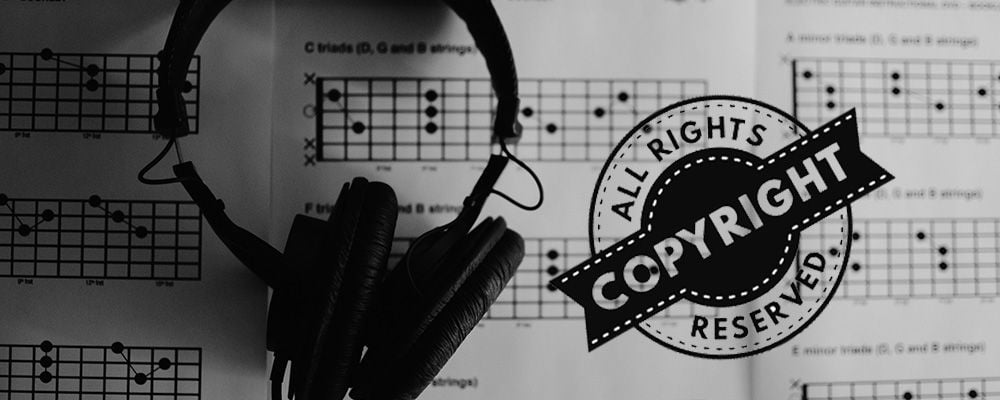Copyright is one of the means of protecting intellectual property
It determines who and how can use a certain work of art. Of course, musicians, video makers, and other creative professionals are primarily engaged in a completely non-copyright. The main thing for them is to create and perform their works. However, content rights issues are very important and should not be neglected.
What do we mean when talking about music rights?
There are two main types of copyrighted music material:
• Sound recordings - which refer to audio content itself. The rights to it usually belong to the performer, producer or sound engineer.
• Compositions/songs - which are lyrics and notes on electronic or paper media. The rights to them, as a rule, are owned by songwriters and composers.
The rights that are usually associated with musical copyright are known as "music publishing rights". They are generally understood to include the following:
• Performance Rights - include the rights to perform the music on radio, TV, live performances.
• Synchronization Rights - allow attaching the music to the audio-visual production such as films, online videos, TV content.
• Mechanical Rights - the right to reproduce and distribute a specific composition onto CDs, DVDs and other storage media.
• New Media Rights - include digital performance and digital transmission of music.
Remember that using someone else's copyrighted material is copyright infringement. In order to use the music that is not your own, you need to license it.
License
A license agreement defines the terms under which an asset of intellectual property is licensed by one party to another, either without restriction or subject to a limitation on the term, business or geographic territory, type of product, etc.
The license also defines the fee for each use of the licensed material. These fees are also called royalties.
Royalties
A royalty in terms of music is a payment made by one party (the "licensee") to the owner of a particular music asset (the "licensor") for the right to use that asset. The royalties may vary by usage type and include the following.
• Mechanical Royalties
Generated through the sale of music in physical formats such as CD’s and DVD’s, or digital formats through downloads predominately on iTunes but also on-demand services like Spotify. Money comes through the publisher or the author gets sales from iTunes. This is a fixed fee the label has to pay.
• Performance Royalties
Generated when music is performed publicly through broadcast on television, radio, live performance at a concert or other performance venues (hotels, bars, restaurants, etc.). The money is collected by PRO’s such as ASCAP, BMI, SESAC, etc. and is then divided between the writer and the publisher.
• Synching Royalties
These are generated when music is used in conjunction with visual images, such as films, TV programs, commercials, and video games.
This is a one-time fee collected by the publisher and paid to the writer (usually 50/50).
• Master Royalties
Master royalties are paid to a label when the label’s recording is used in an advertisement, film, television program, streaming service or other media. Master royalties are typically paid in addition to synchronization or public performance royalties, as royalties paid to the publisher only grant the rights to the use of a song, not a specific recording of a song.
• Other Royalties
These are generated when music is used in mobile ringtones, streaming, stage productions or print music.
Getting the right license for a specific song can be quite complex and time-consuming as you need to find the copyright owner of that composition (they can be a music publishing company or a record label), and submit a detailed request for the type of license that you need. And it's hard to guess what the price will be, as it depends on various factors.
All these inconveniences lead us to royalty free music.
What is Royalty Free music?
In two words, royalty free music is a type of music licensing when the purchaser pays for the music license only once and can use the music for as long as desired without paying any additional fees.
For example, you get a music license for a video on your YouTube channel - and it doesn't matter how big your audience is and for how long time you're going to use this music. You pay just once.
And now a not less important thing:
What is NOT royalty free music?
Royalty Free music is not free. It is free of royalty, not free of charge.
Royalty Free music is not Copyright Free. A composer owns the copyright for a certain piece of music automatically. Even if the music is free to use for any purpose, this means that you have the "right to copy", and this doesn't make the music free of copyright.
Royalty Free music is not a specific type of music. It is a type of music licensing for commercial use and the music may be of any genre.
Royalty Free music is not cheap music. Prices may vary in different libraries. It's not about the price actually, it's about the licensing model. The thing is that you are not charged each time the music is used.
Royalty Free music is not poor quality music. Both amazing and awful music can be licensed as Royalty Free music. The quality mostly depends on the music library policy.
Cover image:Label vector created by freepik - www.freepik.com 





